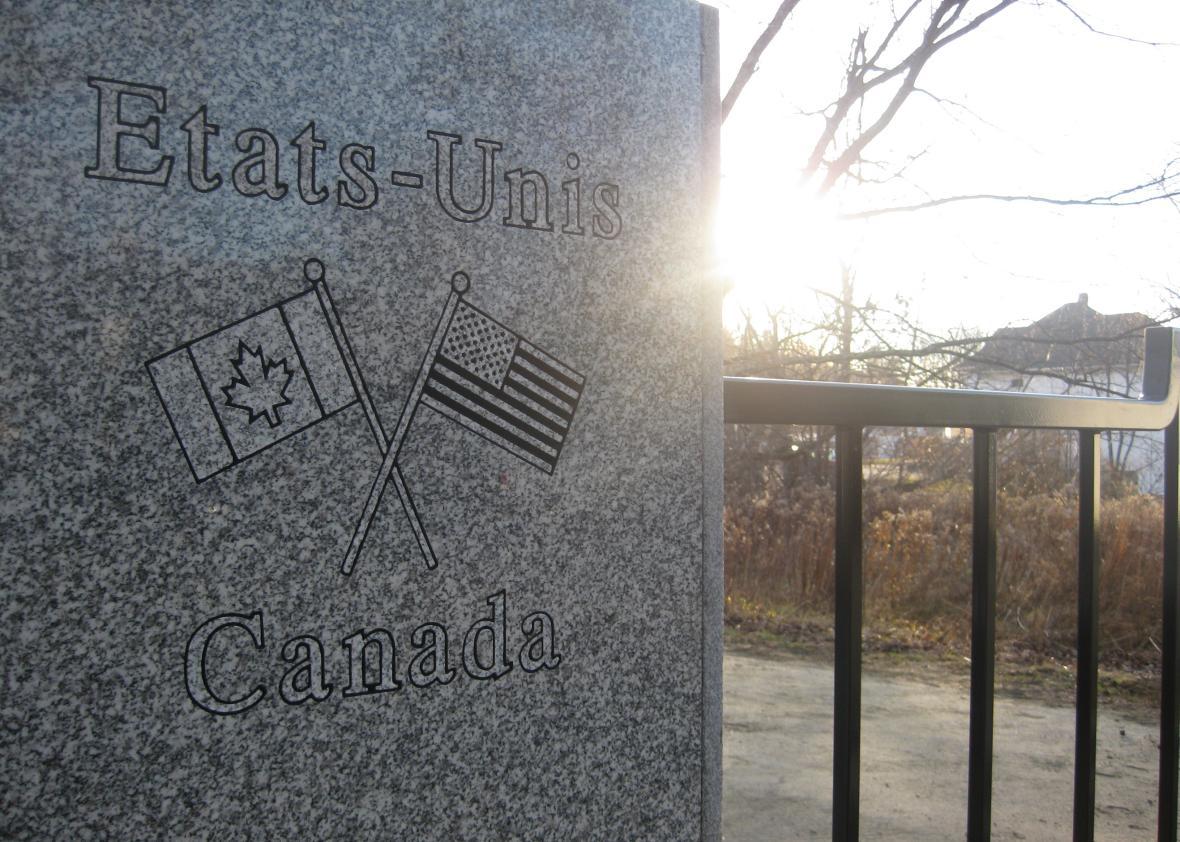Continuing to grope his way toward a semi-coherent immigration policy, Wisconsin Gov. Scott Walker suggested Sunday that the idea of building a fence along America’s 5,525-mile border with Canada is a “legitimate issue.” Walker has stuck with his ridiculous position, saying he’s responding to concerns he’s heard from law enforcement.
The border fence idea may be Trump-inspired lunacy, but Walker is hardly the first U.S. politician to draw attention to the threat emanating from America’s neighbor to the north. The U.S.-Canada border was once described as the longest undefended border in the world, but that’s been increasingly inaccurate since 9/11, with tougher entry requirements, thousands more customs agents deployed from both governments, and a new $70 billion high-tech surveillance system announced last year including thermal imaging and drones.
Much of the “thickening” of the U.S.-Canada border is driven by concerns over terrorism. Here, security hawks actually have a case to make, but only up to a point. While American politicians often conflate the issues of immigration and terrorism by hyping the threat of al-Qaida or ISIS operatives entering the U.S. from Mexico, U.S. homeland security officials have described the Canadian border as a bigger counterterrorism concern than the U.S.-Mexico border. Unlike Mexico, Canada has had major recent attacks linked to international Islamist terrorism, and a significant number of citizens who have traveled to fight with ISIS. There has been at least one major terrorist plot in the U.S. involving someone crossing illegally into the U.S. from Canada—the attempted “Millennium Plot” to bomb several targets, including LAX airport.
But the Canadian terrorist threat has also been overhyped. For one thing, U.S. politicians including Hillary Clinton, John McCain, and former Homeland Security Chief Janet Napolitano keep repeating the persistent but inaccurate claim that the 9/11 hijackers entered the U.S. from Canada. All the hijackers entered via U.S. airports from non-North American countries. The vast majority of terrorist suspects entering the United States have done so through airports, not the border. The threat can also go both ways—a California man looking to travel to Syria to fight with ISIS was arrested crossing into Canada from Washington last year. (Despite this, don’t expect a chorus of support for Walker’s proposal from Canadian officials trying to keep out dangerous Americans.)
While the threat may be exaggerated, the consequences of the border security changes are real. A 2012 report by the Fraser Institute, a conservative Canadian think tank, found that trips by Americans to Canada dropped 53 percent from 2000 to 2009 thanks to post-9/11 security measures. The U.S. and Canada have the largest bilateral trade relationship in the world, but security measures have taken a toll. The Fraser Institute estimated that the combined drop in trade and tourism may cost Canada about $19.3 billion per year. This is one reason why Stephen Harper’s government, even as it has invested in new surveillance and security measures, has lobbied the U.S. to loosen border controls. U.S. exports to Canada also declined sharply after 9/11 following years of post-NAFTA growth.
Walker’s fence idea doesn’t seem like a particularly serious or well-thought-out proposal, but it suggests that American politicians are still willing to trade on highly exaggerated fears at the expense of America’s literally closest international relationship.
